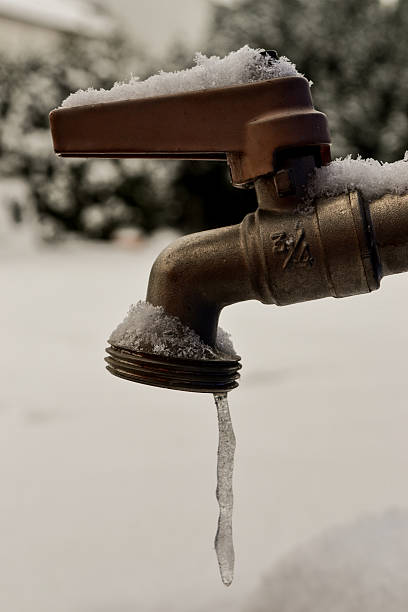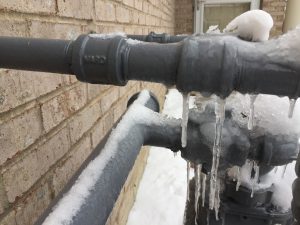How to Protect Your Plumbing from Cold Weather: Essential Tips
How to Protect Your Plumbing from Cold Weather: Essential Tips
Blog Article
Just how do you really feel on the subject of Helpful Tips to Prevent Frozen Pipes this Winter?

Winter can damage your plumbing, specifically by freezing pipelines. Here's exactly how to stop it from happening and what to do if it does.
Intro
As temperature levels drop, the risk of frozen pipes increases, potentially resulting in expensive repair services and water damage. Comprehending exactly how to avoid frozen pipes is crucial for homeowners in cold environments.
Avoidance Tips
Protecting susceptible pipelines
Cover pipes in insulation sleeves or use warmth tape to secure them from freezing temperatures. Concentrate on pipes in unheated or exterior locations of the home.
Heating strategies
Keep indoor areas adequately warmed, especially locations with plumbing. Open up closet doors to permit cozy air to flow around pipelines under sinks.
How to recognize frozen pipelines
Try to find decreased water circulation from taps, unusual smells or noises from pipelines, and visible frost on subjected pipelines.
Long-Term Solutions
Structural changes
Think about rerouting pipelines far from exterior walls or unheated locations. Include extra insulation to attics, basements, and crawl spaces.
Upgrading insulation
Purchase top quality insulation for pipes, attics, and walls. Appropriate insulation aids maintain constant temperatures and minimizes the risk of icy pipes.
Protecting Outdoor Plumbing
Garden tubes and outside taps
Disconnect and drain pipes yard pipes prior to winter months. Mount frost-proof spigots or cover outdoor faucets with protected caps.
Comprehending Frozen Pipelines
What causes pipelines to freeze?
Pipelines freeze when subjected to temperatures listed below 32 ° F (0 ° C) for extended durations. As water inside the pipelines freezes, it increases, putting pressure on the pipe wall surfaces and potentially triggering them to break.
Risks and damages
Icy pipes can result in water supply disruptions, residential or commercial property damage, and costly fixings. Burst pipes can flood homes and cause comprehensive architectural damage.
Indications of Frozen Water Lines
Recognizing icy pipelines early can avoid them from rupturing.
What to Do If Your Pipes Freeze
Immediate actions to take
If you think icy pipelines, maintain faucets available to soothe stress as the ice thaws. Make use of a hairdryer or towels soaked in hot water to thaw pipes slowly.
Conclusion
Stopping icy pipelines requires positive procedures and quick feedbacks. By recognizing the causes, indicators, and preventive measures, property owners can shield their plumbing throughout cold weather.
Helpful Tips to Prevent Frozen Pipes this Winter
UNDERSTANDING THE BASICS: WHY PIPES FREEZE AND WHY IT’S A PROBLEM
Water freezing inside pipes is common during the winter months, but understanding why pipes freeze, and the potential problems it can cause is crucial in preventing such incidents. This section will delve into the basics of why pipes freeze and the associated problems that may arise.
THE SCIENCE BEHIND FROZEN PIPES
When water reaches freezing temperatures, it undergoes a physical transformation and solidifies into ice. This expansion of water as it freezes is the primary reason pipes can burst. As the water inside the pipe freezes, it expands, creating immense pressure on the walls. If the pressure becomes too great, the pipe can crack or rupture, leading to leaks and water damage.
FACTORS THAT CONTRIBUTE TO PIPE FREEZING
Low Temperatures: Extremely cold weather, especially below freezing, increases the risk of pipes freezing. Uninsulated or Poorly Insulated Pipes: Pipes located in unheated areas, such as basements, crawl spaces, or attics, are more prone to freezing. Insufficient insulation or lack of insulation altogether exacerbates the problem. Exterior Wall Exposure: Pipes running along exterior walls are susceptible to freezing as they encounter colder temperatures outside. Lack of Heating or Temperature Regulation: Inadequate heating or inconsistent temperature control in your home can contribute to frozen pipes. PROBLEMS CAUSED BY FROZEN PIPES
- Pipe Bursting: As mentioned earlier, the expansion of water as it freezes can cause pipes to burst, resulting in significant water damage.
- Water Damage: When pipes burst, it can lead to flooding and water damage to your property, including walls, ceilings, flooring, and personal belongings.
- Structural Damage: Prolonged exposure to water from burst pipes can compromise the structural integrity of your home, leading to costly repairs.
- Mold and Mildew Growth: Excess moisture from water damage can create a favorable environment for mold and mildew growth, posing health risks to occupants.
- Disrupted Water Supply: Frozen pipes can also result in a complete or partial loss of water supply until the issue is resolved.
WHY CERTAIN PIPES ARE MORE PRONE TO FREEZING
- Location: Pipes located in unheated or poorly insulated areas, such as basements, crawl spaces, attics, or exterior walls, are at higher risk of freezing.
- Exterior Pipes: Outdoor pipes, such as those used for irrigation or exposed plumbing, are particularly vulnerable to freezing as they are directly exposed to the elements.
- Supply Lines: Pipes that carry water from the main water supply into your home, including the main water line, are critical to protect as freezing in these lines can affect your entire plumbing system.
- Underground Pipes: Pipes buried underground, such as those connected to sprinkler systems or outdoor faucets, can be susceptible to freezing if not properly insulated.
https://busybusy.com/blog/helpful-tips-to-prevent-frozen-pipes-this-winter/

I was introduced to that report about How To Avoid Freezing Pipes through a friend on our other web blog. Do you know somebody else who is involved in Helpful Tips to Prevent Frozen Pipes this Winter? Please feel free to share it. Kudos for your time. Please stop by our website back soon.
Schedule Service Pickup Report this page